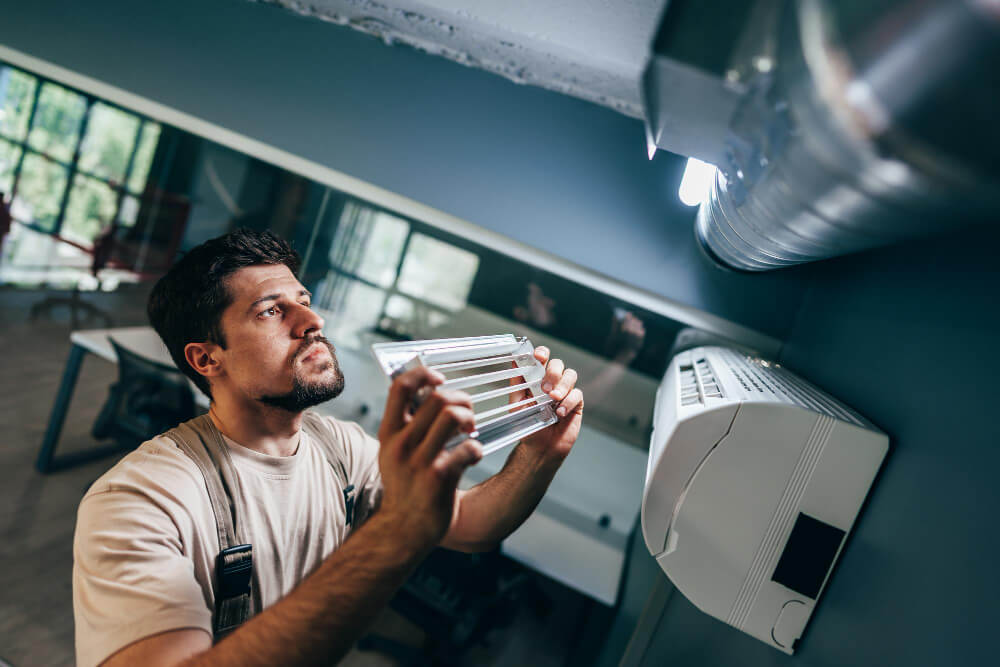When summer hits in Middle Tennessee, your air conditioning system becomes the hero of your home. However, like any hardworking machine, your AC is vulnerable to a range of issues—many of which can be avoided with routine care and attention.
Whether you’re dealing with inconsistent cooling or mysterious noises, most AC problems start small but can lead to bigger (and more expensive) headaches if left unchecked.
In this post, we’ll walk through the top 5 most common air conditioning problems—and more importantly, how to prevent them.
1. Low or Leaking Refrigerant
The Problem:
Refrigerant is the lifeblood of your AC system. It’s responsible for absorbing heat from inside your home and releasing it outside. If your system is low on refrigerant, it won’t cool effectively—and the underlying issue is usually a leak, not just normal usage.
Symptoms include:
Warm air blowing from vents
Ice forming on refrigerant lines
Hissing or bubbling noises
Higher-than-normal energy bills
The Consequences:
Running an AC system with low refrigerant puts immense strain on the compressor and coils, potentially leading to complete system failure.
Prevention Tips:
Have your refrigerant levels checked during seasonal maintenance
If low, don’t just refill—request a leak detection test
Ensure any leaks are repaired before recharging the system
Pro Tip: Never trust a contractor who only offers to “top it off.” That’s a short-term fix for a long-term problem.
2. Dirty or Clogged Air Filters
The Problem:
Your AC filter traps dust, dirt, and allergens before they circulate through your home. But when it gets clogged, it chokes airflow, forcing your system to work harder and less efficiently.
Common signs include:
Weak airflow
Uneven cooling
Rising energy bills
Dust buildup around vents
The Consequences:
Neglected filters can cause coil freezing, system overheating, and even short cycling—where the system turns on and off frequently, wearing out components prematurely.
Prevention Tips:
Check your filters monthly during peak seasons
Replace them every 1–3 months (or more often if you have pets or allergies)
Choose high-quality filters rated for your specific HVAC system
3. Frozen Evaporator Coils
The Problem:
Evaporator coils absorb heat from your home’s air. If airflow is restricted or refrigerant is low, the coils can freeze—preventing heat absorption and reducing cooling capacity.
Warning signs include:
Ice buildup on the indoor unit
Warm air or no airflow
System running continuously without cooling
The Consequences:
Frozen coils cause your system to work inefficiently and could lead to compressor failure if the issue isn’t resolved quickly.
Prevention Tips:
Keep filters clean and airflow unrestricted
Schedule seasonal inspections to check for low refrigerant and airflow issues
Avoid closing too many supply or return vents in your home
Pro Tip: If you notice ice on your coils, turn off your system and call a professional before restarting it.
4. Electrical Issues or Capacitor Failure
The Problem:
Your air conditioner relies on a series of electrical components—capacitors, contactors, relays—to power the compressor and fans. Over time, heat, wear, and power surges can weaken or damage these parts.
Symptoms include:
AC won’t start or turns off randomly
Clicking or buzzing sounds
Burning smell near the outdoor unit
AC fan runs but compressor doesn’t kick on
The Consequences:
Faulty electrical components can cause system shutdowns, short cycling, or worse—electrical fires if ignored.
Prevention Tips:
Have all electrical components inspected during your annual tune-up
Consider a surge protector for your HVAC system
Replace aging capacitors or relays before they fail completely
5. Drainage Problems and Water Leaks
The Problem:
Your AC doesn’t just cool the air—it also removes moisture. That moisture condenses and drains through a small pipe. If the drain line gets clogged, water backs up into your home or the system.
Signs of trouble include:
Water pooling near the indoor unit
Musty odors or mold growth
AC shutting off unexpectedly (due to float switch activation)
The Consequences:
Poor drainage can cause water damage, mold issues, and even affect electrical components inside your system.
Prevention Tips:
Clear your AC drain line with vinegar every few months
Have your HVAC technician flush and inspect the condensate drain annually
Install a float switch to automatically shut down the system if a backup occurs
How to Avoid All 5 Problems: Regular HVAC Maintenance
The best way to keep your system running smoothly is to invest in routine HVAC maintenance from a licensed professional.
At South Nashville Heating & Cooling, our maintenance plans include:
Full system inspections
Coil cleaning
Refrigerant level checks
Electrical testing
Drain line flushing
Filter changes
This proactive approach ensures maximum efficiency, fewer breakdowns, and longer system lifespan—saving you money and stress in the long run.
Need Help With Your AC? Call the Local Experts.
If you’re experiencing any of these common AC problems—or just want peace of mind before peak summer temps—reach out to the experts at South Nashville Heating & Cooling.
We proudly serve homeowners across South Nashville and surrounding communities with fast, honest, and affordable HVAC services.
👉 Fill out the form below to schedule your seasonal tune-up or request a service call. Don’t wait until your system breaks down—take care of it now and stay cool all summer.









